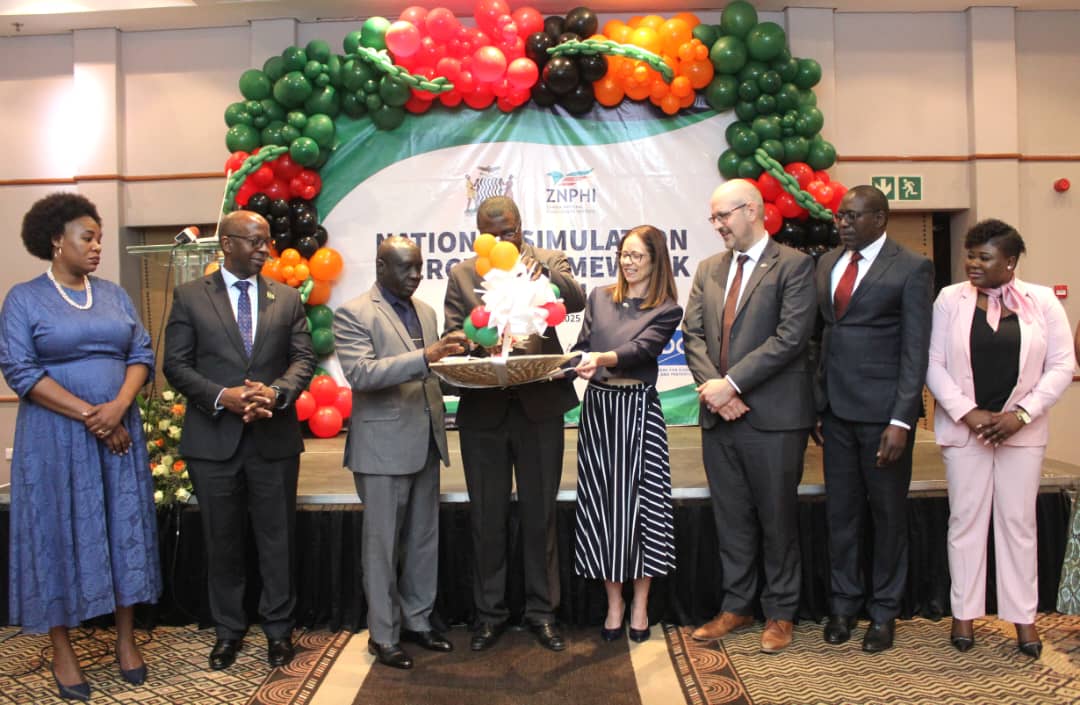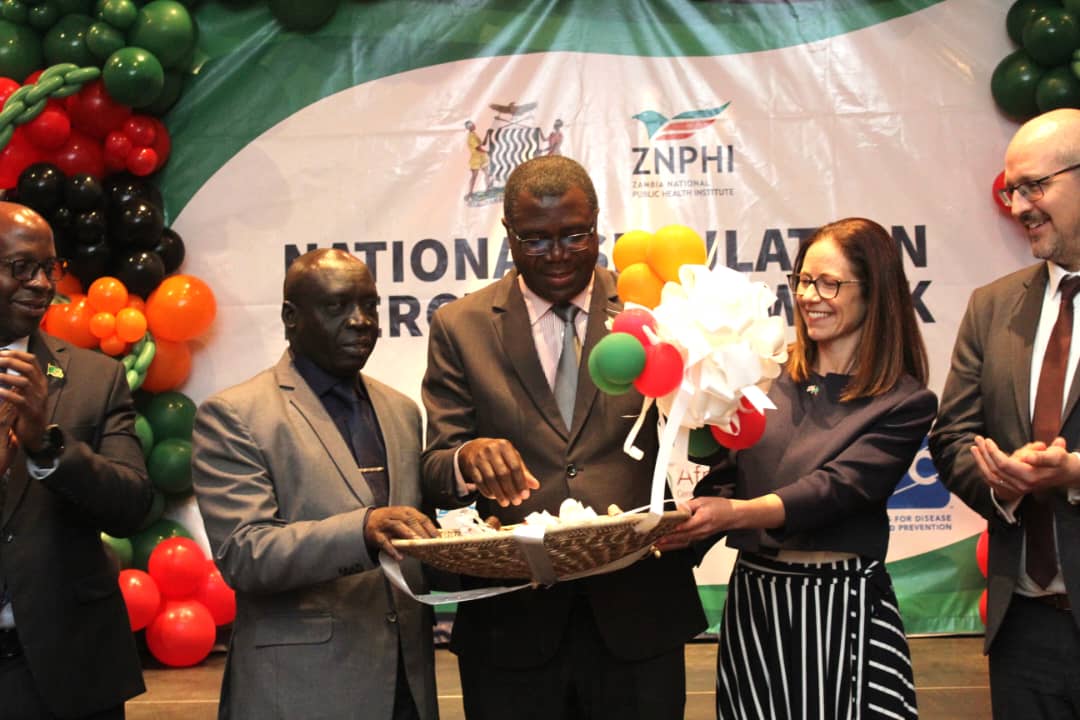Zambia Sets New Health Standard
 Africa’s first national simulation framework positions Zambia as a regional health security leader
Africa’s first national simulation framework positions Zambia as a regional health security leaderBy Francis Maingaila ♥️
Lusaka, Zambia – September 4, 2025 – Zambia has officially launched Africa’s first National Simulation Exercise (SIMEX) Framework, a landmark initiative designed to enhance the country’s readiness and response to public health emergencies and other crises.
The framework, developed under the leadership of the Zambia National Public Health Institute (ZNPHI) with support from national and international partners—including the World Health Organization (WHO), Africa CDC, US CDC, FAO, and the UK Health Security Agency—establishes a structured mechanism for testing health systems before outbreaks occur.
Speaking on behalf of the Permanent Secretary of Health, ZNPHI Director-General Prof. Chilengi described the launch as a “historic moment” for Zambia and the region.
He noted that past epidemics—such as HIV/AIDS, Ebola, COVID-19, as well as recurrent cholera and measles outbreaks—underscored the urgent need for a coordinated national approach to emergency preparedness.
“Health security is national security. Investing in preparedness safeguards the lives, livelihoods, and future of our people,” Prof. Chilengi said.
The SIMEX Framework adopts a One Health, all-hazards approach, integrating human, animal, and environmental health. It is designed to test and validate systems, identify gaps in coordination, logistics, and communication, and strengthen collaboration across multiple sectors, including health, environment, livestock, police, and immigration services.
Prof. Chilengi emphasized that the framework provides a comprehensive national blueprint for planning, implementing, and evaluating simulation exercises at national, provincial, and district levels.
“Simulation exercises are critical tools for preparedness. They allow shortcomings to be corrected before lives are at risk,” he said.
Th e framework complements Zambia’s One Health Strategic Plan and cholera response strategies through the Case Area Targeted Interventions (CATI) model, which equips district authorities and community volunteers to detect and contain outbreaks before they escalate.
e framework complements Zambia’s One Health Strategic Plan and cholera response strategies through the Case Area Targeted Interventions (CATI) model, which equips district authorities and community volunteers to detect and contain outbreaks before they escalate.
 e framework complements Zambia’s One Health Strategic Plan and cholera response strategies through the Case Area Targeted Interventions (CATI) model, which equips district authorities and community volunteers to detect and contain outbreaks before they escalate.
e framework complements Zambia’s One Health Strategic Plan and cholera response strategies through the Case Area Targeted Interventions (CATI) model, which equips district authorities and community volunteers to detect and contain outbreaks before they escalate.Dr. Clement L. Peter Lasuba of WHO Zambia commended the government’s commitment to health security while highlighting ongoing gaps in early detection, coordination, timely response, and community resilience.
“The SIMEX framework is more than a technical drill. Without practical testing, plans and structures remain theoretical,” he said.
“Regular exercises increase knowledge, confidence, trust, and speed—all essential for saving lives.”
He explained that SIMEX institutionalizes structured exercises and After-Action Reviews, ensuring lessons are captured and used to strengthen emergency preparedness and response systems.
Dr. Lasuba further urged decentralization of the framework, enabling provinces and districts to conduct localized exercises:
“Emergencies begin locally, and strong subnational preparedness forms the backbone of national resilience.”
The initiative benefits from support through the UK Health Security Agency’s IHR Strengthening Project and the Zambia Pandemic Preparedness Resilience Project (ZamPPR), which provide vital resources to reinforce public health infrastructure. WHO’s Simulation Exercise Manual, which standardizes methodology, terminology, and operational guidance for governments, will also guide implementation.
British High Commissioner to Zambia, HE Rebecca Terzeon, hailed the launch as a milestone for Zambia and the region.
“Diseases and health threats do not respect borders. To be safe, we must prepare collectively, test our systems collaboratively, and learn together,” she said.
Terzeon praised Zambia’s leadership in health security, citing President Hakainde Hichilema’s role as Global Cholera Champion, the launch of the Continental Cholera Outbreak Response Plan, and the One Health Strategic Plan.
She also highlighted the ongoing CATI cholera model and vaccination efforts, noting the UK’s recent £1.25 billion pledge to Gavi’s 2026–2030 program, which aims to protect up to 500 million children globally.
The launch gathered Permanent Secretaries from the Ministries of Local Government, Green Economy and Environment, and Fisheries and Livestock, along with senior government officials, members of the press, and representatives from international organizations.
Institutionalizing SIMEX positions Zambia as a regional leader in health security, ensuring rapid, coordinated, and effective responses to public health emergencies.
The initiative reflects a commitment to fostering a culture of learning in preparedness, where systems are routinely tested, shortcomings addressed, and lessons institutionalized for continuous improvement.
“Preparedness is demonstrated in action, not just in plans. Let us use this framework to ensure the country is ready when it matters most,” Dr. Lasuba concluded.



Comments
Post a Comment